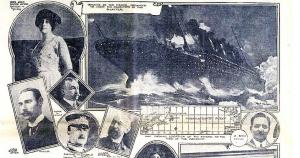 The right story will save us if we believe it.* Not all stories are this way, the tale of my brother stealing my gum at five** is not redemptive or even relevant to most people. History is full of events, but also of stories.
The right story will save us if we believe it.* Not all stories are this way, the tale of my brother stealing my gum at five** is not redemptive or even relevant to most people. History is full of events, but also of stories.
A story is a true myth, a likely account of something that finds deep truth, moral goodness, and beauty out of the data of history. The story is the job of the mythic poet and not of the historian, but the best story will get history just right.
And it is the story that will save us if we believe it. The story is true so our minds can draw rational conclusions about what is good, what ought to be, from what was. The story is beautiful, the best poetic mythology gets the data, the words, right but also has music. The story teller causes events to transcend time. If there was a Trojan War, Homer made it matter for the ages. Some cultures from the ancient Greeks, to the Welsh, to Aksum, to North American First Nations prize story telling.
A culture gets more of what it encourages.
Walter Lord changed me by writing A Night to Remember . He told the story of the sinking of RMS Titanic so well that I dreamed of the great liner for days. Since then our family has recalled the heroism, lessons to be learned, and the story of RMS Titanic. I wrote a play that has been performed several different times (available for no royalty!) and a couple dozen essays and lectures.
Why this event?
Ships sink, though not often on their maiden voyage. Tragedies multiply, but RMS Titanic sank very close to a hinge in history when the way the world was changed: RMS Titanic sank so close to World War I, the Great Influenza Epidemic, and the Russian Revolution that some people felt they got up one morning read Titanic was gone and the news stayed horrific from that point forward.
The event is full of small stories that are timeless: an elderly woman refusing to leave her husband so they could die together, a rich man seeing off his new bride to die as a gentleman (redeeming a wastrel life), the Captain going down with the ship while the director of the line hopped into a lifeboat. English people dying disproportionally (did they like to queue too much?) and class predicting too often who would die as if steerage did not come with a ticket to the lifeboats.
The White Star Line put more lifeboats on the ship than required, but not enough, not nearly enough. Government and private industry both failed: nothing ever changes. Death cannot be cheated, but beauty points the way to eternity as when the band played on as the good ship went down.
I was born more than fifty years after the event and the last survivor died ten years ago. The sounds, the survivors said, were the hardest part, one thousand voices crying out: one survivor never went to a baseball game as he had the roar of a different crowd on April 14, 1912. They do not film the steel cables whipping across the deck. Thank God. Told properly we can recollect, imagine, and so learn from the myth that is true.
What have I learned from the story? Not just ten lessons, score really, but not merely lessons but truth that I cannot forget.
Do your duty and keep doing your duty. Be Charles Lightoller.
If you fail, the problem was not the iceberg or the stars, but you. Don’t be Bruce Ismay.
Great courage can make any object priceless: create beauty like Wallace Henry Hartley.
Be Calm, but Don’t Carry On.
Don’t Run Your Business like the White Star Line or Don’t Charge the Dead Bandsmen’s Families for Their Uniforms.
Try to learn something from RMS Titanic if you find yourself working for the equivalent of the White Star Line.
Don’t deny reality: if the ship is going down act, but act wisely.
This is bad, but eternity can give the story a new meaning.
There are worse outcomes than dying: be a Heroic Loser.
Cheer up, We’re Doomed!
The story will save us if only we believe it.
——————————————
*So says Socrates at the end of The Republic.
**Daniel would tell this story differently.












